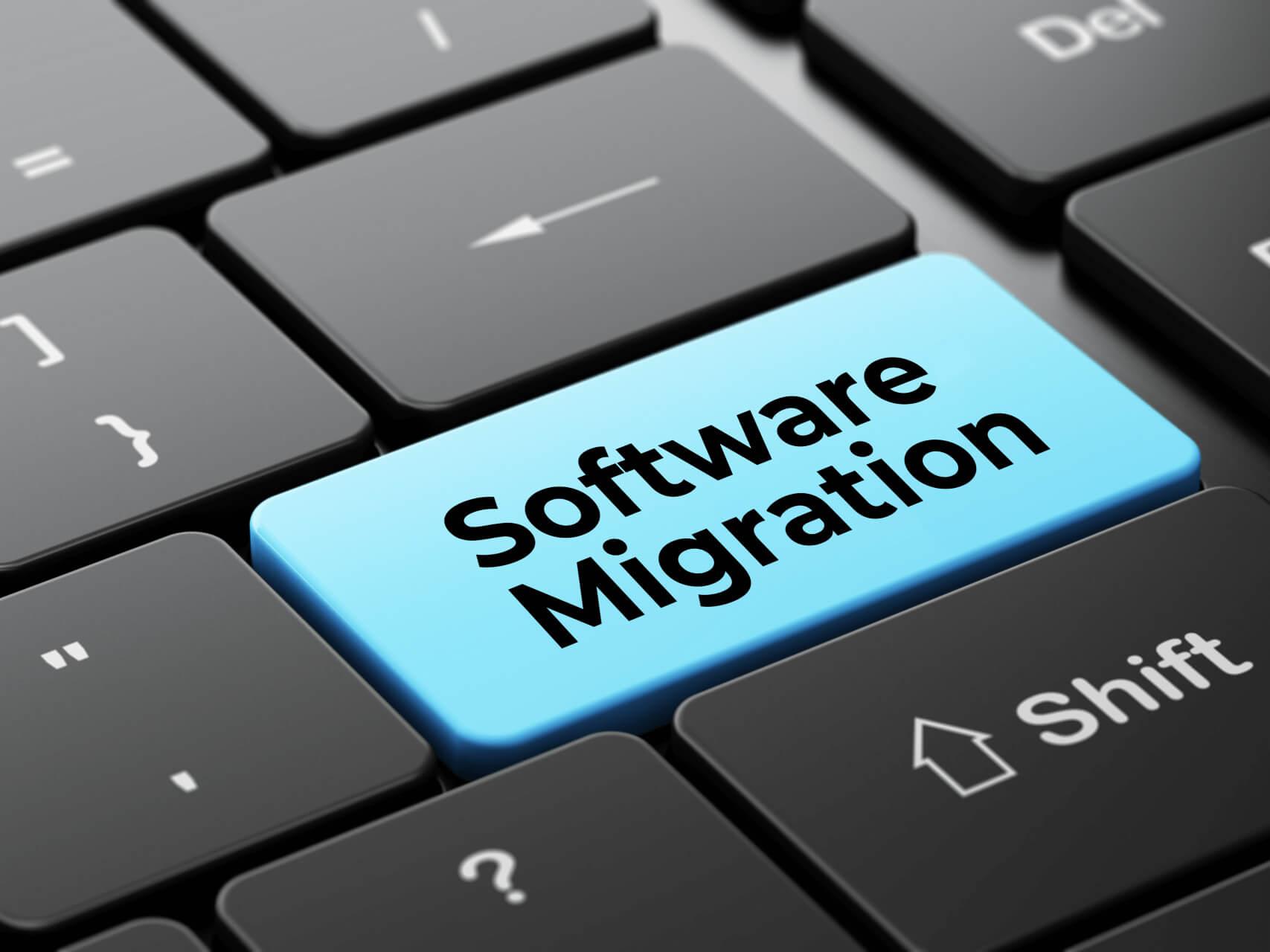SOFTWARE MIGRATION – A REAL ALTERNATIVE
A professionally realised software migration means
- safeguarding individuality, know-how and unique selling points
- paving the way for future-proof platforms and development environments
- opening up the modern world of information and communication
- preserving independence of proprietary manufacturers and licence products
- saving time and costs
Compared to a new development, a software migration has the decisive advantage that it requires less effort. Experience from several projects proves a ratio of 1:8. If a migration project has an expected scope of 15 man-years (which is a quite common time span), for example, about 120 man-years would have to be calculated for a development from scratch.
A software migration usually embraces all components of a legacy system (programmes, screens, files, jobs, middleware, databases).
Software migration can only be realised successfully with sophisticated conversion tools. The tools must work in analogy to a compiler to map complex compiling processes in a semantically equivalent way. The development of such tools requires detailed knowledge of compiler technology.
The graphic shows the migration paths supported by us and the software tools used accordingly.
Over the last 30 years, we have successfully realised migration projects – on time and on budget. Naturally, our experience gained over the years flows into current and future migration projects.
WHY NO OFF-THE-SHELF STANDARD SOFTWARE?

“We combine […] a historically grown
corporate culture with innovative ideas, special commitment and a very individual service […] The providers of standard software can […] offer neither such a speed of innovation nor the degree of individualisation that is necessary for our special business.”
Gerd Simon,
Director & CIO at Berenberg Bank,
Computerwoche
WHY NO NEW DEVELOPMENT ON A GREENFIELD SITE?

“Some companies
strive for developing COBOL applications in a different programming language. However, due to the scope and age of the code, a company would have to expect a duration of eight to ten years for such projects”
Pierre Gronau,
IT Consultant & COBOL Expert,
„IT & Karriere“ 2/2023
WHY SOFTWARE MIGRATION WITH US?

Our pecBOX includes a coordinated collection of sophisticated conversion tools based on scientific expertise in compiler technology.
Each migration project follows a defined „roadmap“ that has been tried and tested in practice and is customised to individual customer requirements. We have decades of experience in the successful orchestration of migration projects. All projects have been completed on time and on budget.
The tools have reached a maturity that enables an automation level of 95–99 %. During the migration project, no “code freeze” is required, as the high automation level allows for converting and testing the developed programmes again at any time.
Thanks to our meta tools (parser generators) during tool development, the conversion tools can be quickly adapted to new project requirements.
A legacy modernisation in a short project term and without code freeze can only be successfully realised with tool-supported software migration.
SOFTWARE MIGRATION AND AI
The British computer scientist Alan Turing is regarded as one of the most influential pioneers in the field of artificial intelligence (AI). In 1950, he formulated an intelligence test for computers: a computer is intelligent if, in a conversation with it, a person cannot recognise whether it is a computer or a human.
Today, Turing’s visions have become reality. By recognising statistical correlations between words, AI language models can determine the most likely next word (semantic probability) and enable human-like communication.
The current areas of application for AI go far beyond communication. The use of AI in software migration is also currently being propagated (e.g. IBM watsonx Code Assistant for Z). This raises the question: what are the possibilities and limits of AI in software migration?
To find out more about this question, see our analyses, test results and comments:

“Migration des Südleasing COBOL-Kernbanken-Systems nach JAVA mit einem iterativ-inkrementellen Ansatz”
Abstract for 24th “Workshop Software-Reengineering & Evolution” 2–4 May 2022 in Bad Honnef, published in:
Softwaretechnik-Trends, volume 42, part 2, May 2022
“Jedes COBOL-Java-Migrationsprojekt birgt neue Überraschungen”
Abstract for 24th “Workshop Software-Reengineering & Evolution” 2–4 May 2022 in Bad Honnef, published in:
Softwaretechnik-Trends, volume 42, part 2, May 2022
“Toolbasierte Software-Migration nach Plan”
Abstract for 18th “Workshop Software-Reengineering & Evolution” 2–4 May 2016 in Bad Honnef, published in:
Softwaretechnik-Trends, volume 36, part 2, May 2016
“Aus Alt mach Neu – automatisch! Migrationsprojekte erfolgreich planen und realisieren”
Article by Dr. Uwe Kaiser (pro et con), published in:
Business Technology, release 03/2014, page 41